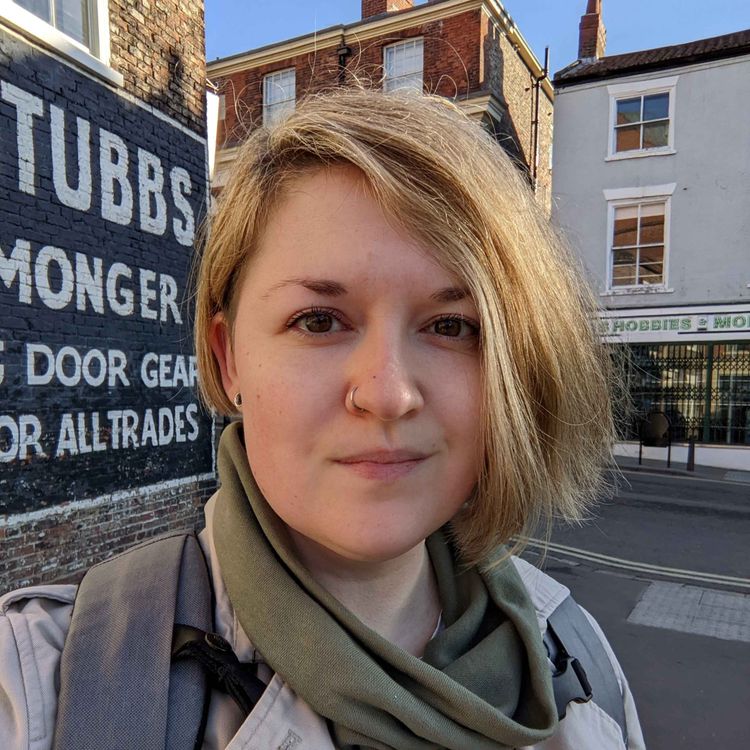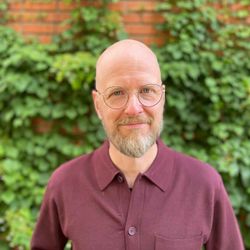Share

Tourism Geographies Podcast
TripAdvisor as a ‘geo-pastoral technology
If you possess a smartphone and use applications that are functionally bound to location, you are familiar with locative media. This genre of digital platform enables navigation and wayfinding, as well as promotes and rewards exploration. Surprisingly, the touristic significance of this has been seldom investigated. This article unpacks the capacity of TripAdvisor to facilitate and limit spatial exploration by analysing its non-digital antecedents, including travel agencies and guidebooks, attending to the dual governance they enact. It is argued that TripAdvisor acts as a geo-pastoral technology which orders the conduct of spatial subjects – both mobile and mapped – and the environments in which they move about and operate. This Foucauldian-Latourian framework is elaborated with findings from an ethnographic project exploring the social life of TripAdvisor within a literary-inspired touristic scene in Edinburgh, Scotland. In doing so, it positions this concept as a tool for analysing how human social actors become involved with locative media platforms in their efforts to navigate environments characterised by the now mundane dynamics associated with algorithmic governmentality. The modes of governance identified through this genealogy have ontological implications for how we research, teach about, and manage hospitality work, tourism services and geographies in the digital age.
More episodes
View all episodes

22. Reshaping landscapes and human–environment relationships through geotourism
30:33||Season 4, Ep. 22https://doi.org/10.1080/14616688.2025.2575314AbstractThis study examines how the designation of Batur as Indonesia’s first UNESCO Global Geopark in 2012 has reshaped volcanic landscapes, socio-economic structures, and cultural life in Bali. Drawing on the framework of Landscape Political Geology, it traces how geological forces, spiritual cosmologies, and global heritage regimes converge to transform both land and livelihoods. Using a mixed-methods approach—combining qualitative interviews, secondary statistical data, and documentary analysis—the study reveals how the geopark has generated new opportunities—particularly in tourism and service employment—while simultaneously marginalizing small-scale farmers and miners, restricting ritual access to land, and intensifying governance tensions between state authorities, external investors, and village communities. These processes have reconfigured Batur’s material and symbolic landscapes, shifting its status from a sacred mountain–lake complex to a commodified tourism asset, yet one that remains deeply embedded in local cosmologies. The study contributes to debates on the politics of nature and tourism geographies by showing how geoparks operate as contested arenas where geology, power, and culture are continuously renegotiated.
21. Indigenous-settler relations at work in Uluru-Kata Tjuta National Park’s tourism industry
33:19||Season 4, Ep. 21https://doi.org/10.1080/14616688.2025.2562976AbstractThe Australian settler government has repeatedly promised Indigenous peoples (Anangu) of Uluru-Kata Tjuta National Park that they will benefit from settler government’s use of their lands as a significant tourism destination, yet the Anangu community of Uluru remains one of the poorest communities in Australia. This article utilises historical analysis and qualitative interviews with Anangu, Parks staff, and tourism staff to chart key dynamics in the relationship between the tourism industry and Anangu over 39 years of Joint Management in the Park. We show how the prioritisation of settler logics of tourism and work over Anangu benefit is not just an arbitrary cultural decision meted out in day-to-day interpersonal relations but is built into the geographies and temporalities of work in the Park. Highlighting how Anangu benefit is deferred through settler logics of work draws attention to the possibility for alternatives that are founded on Indigenous lifeworlds. This article’s analytic focus on quotidian, relational dynamics in intercultural contexts brings insights from Indigenous and settler colonial studies into tourism research and demonstrates a new way of identifying opportunities for transformation in Indigenous tourism industries in settler colonies. From a practical perspective, these insights underscore the importance of developing shared understandings of what meaningful and good “work” is in intercultural industries and highlights possible interventions into entrenched dynamics between Indigenous and settler peoples in these contexts.
20. Regenerative shift: community-based ecotourism through culinary value chain and experiencing place lenses
29:49||Season 4, Ep. 20https://doi.org/10.1080/14616688.2025.2533471AbstractThis study investigates the regenerative potential of community-based ecotourism (CBET) through the lens of culinary value chains and experiential perspectives, analyzing their role in promoting cultural preservation, environmental stewardship, and local economic resilience. Employing Critical Place Inquiry (CPI) and ethnographic research methods, including participatory video, photography, walks, and mental mapping, the research examines the integration of Indigenous knowledge and place-based culinary traditions in fostering sustainable tourism models within Trà Vinh province, Vietnam. Findings reveal that culinary practices are deeply embedded within broader ecological, cultural, and social landscapes, functioning as socio-ecological systems that bolster local agency, facilitate intergenerational knowledge transfer, and promote environmental protection. The research identifies four key place-based resources—culinary diversity & cultural identity, gastronomic harmony & social cohesion, environmental conservation & sustainability, and cultural exchange & intercultural understanding—critical for understanding the significance of place in CBET. Case studies exemplify how community-led culinary initiatives, rooted in Indigenous knowledge, strengthen agricultural traditions, foster biodiversity, and enhance community resilience. The study demonstrates that incorporating participatory methods enhances the comprehension of place-based tourism practices, positioning culinary value chains as essential mechanisms for preserving cultural traditions and ecological well-being. It offers novel insights into the transformative capacity of localized, community-based ecotourism, highlighting the crucial role of Indigenous viewpoints in tourism planning and advocating for holistic, inclusive, and sustainable culinary tourism strategies that lead to net-positive socio-environmental outcomes.
19. Militourism
32:25||Season 4, Ep. 19https://doi.org/10.1080/14616688.2024.2417853AbstractThis review tracks the genealogy of the term militourism and its development and use since the early 1990s primarily through the scholarship of Teresia Teaiwa. It begins with a discussion of the concept’s emergence, with particular attention to the Pacific region, and examines other sites where the term has shed light on tourism and militarism’s collusions. In addition, the review considers scholarship that works with and through the term militourism, but which do not necessarily engage with its specific analytic. The review also examines the centrality of race, indigeneity, and gender in militourism’s analytical scope, and notes how its origins in the militarized Pacific necessarily tether the term to land and decolonial struggles.
18. Contested sacred space: state power, spatial politics, and heritage tourism
33:15||Season 4, Ep. 18https://doi.org/10.1080/14616688.2025.2495192AbstractThe global rise of heritage tourism has intensified struggles over the ownership, meaning, and spatial governance of religious sites, yet the contested interplay of ideology, power, and sacred space remains understudied. This article addresses this gap through a longitudinal analysis of China’s Famen Temple, where two decades of state‑led tourism development have reconfigured sacred space through historical reinterpretations, institutional transformations, and spatial negotiations. Drawing on critical heritage studies and qualitative fieldwork, the study reveals how official discourses strategically reframe religious pasts to align with contemporary economic and ideological agendas, manifesting in spatial restructuring, ritual commodification, and redistributed power among stakeholders. Heritage tourism here emerges as a contested process: state and commercial actors leverage tourism for territorial control and economic growth, while monks and local communities navigate, resist, and adapt to these changes. The tensions between economic imperatives, religious traditions, and authoritarian governance illustrate that sacred sites are neither passively secularised nor sacralised but continually redefined through socio‑spatial contestation. By framing religious heritage as arenas of political negotiation, this study advances critical debates on tourism’s role in spatialising state power, arguing that such transformations reflect broader global struggles over cultural legitimacy, authority, and the right to define “heritage” itself.
17. Bridging (over)tourism geographies: proposing a systems approach in overtourism research
37:58||Season 4, Ep. 17https://doi.org/10.1080/14616688.2025.2502507AbstractThis paper utilises bibliometric data on peer-reviewed publications to examine the characteristics and dominant narratives in overtourism research to date. Departing from earlier state-of-the-art reviews, it introduces a spatial perspective with a distinct focus on spatial processes and geographical scales. The analysis identifies six overarching themes in the literature, which predominantly centre on metropolitan contexts and are characterised by a normative critique of tourism. While the literature often identifies the causes of overtourism at either the global or local scale, proposed solutions tend to emphasise local-level responses, particularly through planning and destination management. The paper makes two key contributions: first, it highlights the need to broaden overtourism research beyond its current urban and metropolitan focus to encompass a wider range of geographical contexts; second, it emphasises the significance of engaging with geographies of scale to address overtourism not merely as a local planning challenge, but as a structural and systemic issue demanding multi-scalar interventions.
16. The tourism periphery: from structural hierarchies of place to relational ontology
35:43||Season 4, Ep. 16https://doi.org/10.1080/14616688.2024.2404643
15. Navigating a changing Arctic: toward adaptive governance in Greenland and Svalbard
38:39||Season 4, Ep. 15https://doi.org/10.1080/14616688.2025.2515098AbstractTourism is vital in ensuring thriving communities in peripheral areas of the Arctic. However, many Arctic destinations have seen a dramatic increase in visitors, raising concerns about their ability to withstand tourism pressures. Simultaneously, socioecological systems in the region are undergoing rapid transformations with significant implications for future development. This study, based on qualitative research conducted from 2020 to 2024, explores how tourism actors at Arctic destinations navigate these changes and engage with various scales of tourism governance. Our findings highlight divergent approaches to governance: Svalbard’s top-down regime focuses on strict environmental preservation but faces resistance from local tourism actors, while Greenland is prioritizing tourism as a development strategy, aiming to balance national goals with local community needs. Despite differing views on regulation, tourism actors in both destinations seek greater involvement in tourism decision-making. We argue that employing place-based, collaborative, and adaptive governance approaches is essential to address common challenges such as sustainability, climate change, and (over)tourism in Arctic regions.
14. Geographies of hotel guest electricity, water and gas consumption
27:17||Season 4, Ep. 14https://doi.org/10.1080/14616688.2025.2516098AbstractIndividual preferences are known to be influenced by people’s lived experience at home and on holidays, however, the factors contributing to higher or lower resource demands by hotel guests are not well understood. We advance a practice-based ‘Resource Cultures’ framework and examine the daily energy and water consumption rates of hotel guests from geographically diverse climates vacationing at a ecolodge in tropical North Queensland, Australia. Specifically, guests’ (n = 395) ‘home’ climate zone and continental origin, as a proxy for cultural background, are examined as potential drivers of resource consumption. The results show that climatic origin is a stronger determinant of resource use than cultural origin. Guests originating from tropical and arid climate zones used significantly more water and energy than those from warm temperate zones. Electricity consumption was highest among guests from humid tropical and subtropical climate zones, whilst those from arid climate zones used the most water. The findings provide empirical evidence of the influence of origin-related drivers of resource consumption patterns with tangible implications for accommodation providers. Considering guests’ climatic and cultural origins in targeted pro-environmental communication will enhance the effectiveness of operators’ sustainability programs. Furthermore, these factors should be considered when benchmarking resource use among comparable hotels.